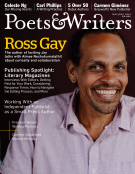In recent years Oxford University Press has made efforts to expand the Oxford English Dictionary by introducing vocabulary used by English speakers around the world. The Oxford Dictionary of African American English (ODAAE), however, may be the press’s most ambitious effort of this kind to date. Slated for release in 2025, the ODAAE will involve a three-year-long multidisciplinary research project compiling terms popularized by speakers of African American English (AAE), a variety of English blended with African languages and geographically distinct North American dialects.
While several dictionaries devoted to African American speech were published during the twentieth century—with editors such as singer Cab Calloway and poet Clarence Major—the ODAAE will be the first “large-scale, systematic study, based on historical principles, of the myriad contributions that African Americans have made to the shape and structure of the English language,” literary critic and historian Henry Louis Gates Jr. said in a press release. With funding from the Andrew W. Mellon and Wagner foundations, the project has Gates in the role of editor in chief, leading a team of researchers at Harvard University’s Hutchins Center for African and African American Research. Once complete, the ODAAE is poised to become “a powerful tool for a new generation of researchers, students, and scholars,” Casper Grathwohl, president of Oxford Languages at Oxford University Press, said in a statement.
Oxford’s ambitious dictionary represents a decided shift from traditional designations of AAE as “bad or broken English,” explains Tracey Weldon, a quantitative sociolinguist who specializes in Black American dialects. For this reason she didn’t hesitate to accept an invitation to serve on the project’s advisory board, considering the ODAAE both necessary and timely. “Given all of the incredible contributions that African American speakers, writers, artists, and scholars have made to the American lexicon, this project seemed long overdue,” she says. Weldon has seen both the demonization and appropriation of AAE, often without credit given to the people who create it. She hopes the dictionary will introduce readers to a language “deeply rooted in the history and culture of its speakers.”
To that end, one of the more exciting aspects of the ODAAE’s publication is the opportunity for the general population to weigh in on what should be included. Although this practice has long been a part of Oxford University Press’s documentation of world Englishes, it feels particularly important for AAE, a language that is constantly in flux. In addition to input from its board of advisors, the project’s website offers a submissions portal where contributors can suggest words and phrases, offer definitions and reflections, and even upload audio files of proper pronunciation. The task of vetting such submissions sounds daunting but will arguably make the final product one that feels accessible—not only to those who study the language for a living, but to those for whom AAE is an invaluable mode of daily speech.
Weldon herself already has ideas percolating for possible entries: “I’m rooting for ‘jonin’!” she says about a word she used during her college days to describe the African American art form of trading insults. “Having verbal dexterity and being able to ‘hold one’s own’ in such verbal battles (typically as a form of verbal play) is such an important skill in the African American speech community,” she explains. “Every generation seems to lexicalize it in some way—from ‘playin the dozens’ to ‘crackin’ or ‘snappin.’”
Black book influencers Reggie Bailey and Akili Nzuri (also known as Jerid P. Woods) also see AAE as a mode of self-actualization: AAE is “who we are,” says Bailey, who with Nzuri hosts Books Are Pop Culture, a podcast and YouTube series featuring cultural commentary and interviews with authors, many of whom are African American. “I don’t think we could show up as our true selves [on our show] without AAE...being included,” he says. Nzuri agrees, arguing that the language deserves as much attention in literature as traditional English. Despite AAE’s proliferation in popular culture, books written with and about the language are still underrepresented in literary publishing. They are often presumed to be most marketable to niche audiences who can connect with its speakers, a presumption that flies in the face of AAE’s unabashed popularity.
Both Bailey and Nzuri are excited about the prospect of the ODAAE’s serious attention to voices like theirs, as both a celebration of AAE and a way to clarify who the language belongs to. “I think we need [the ODAAE] because a lot of times we just create,” says Nzuri. “We don’t necessarily document.”
Bailey agrees, but he wants to make clear that documentation does not equal legitimacy. Though the ODAAE may serve as academic acknowledgement of AAE’s importance, one thing has always been true: “Our language has been valid,” he says.
Destiny O. Birdsong is the author of the poetry collection Negotiations (Tin House, 2020) and the triptych novel Nobody’s Magic (Grand Central, 2022). She is an artist-in-residence at the University of Tennessee in Knoxville.








